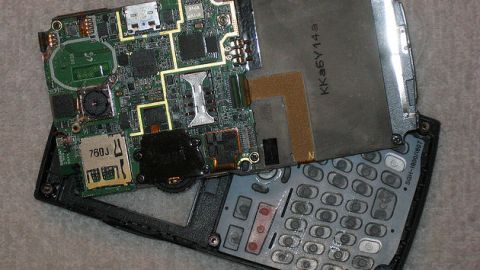In America, We Like our Phones Smart and our Politicians Stupid

I got my first “smart” phone last week—the iPhone 4S—and I guess it’s already obsolete, since rumors of the iPhone 5 are flying.
My smartphone and its mysterious resident genius, a tinny female voice/persona/service named Siri (at first read, I thought this was Tom Cruise and Katie Holmes’ daughter), has so far proven its genius by answering my 10-year-old son’s question, “how much wood could a woodchuck chuck if a woodchuck could chuck wood?”
Siri answered, “It depends on whether you are talking about American or European wood.”
So far as genius techno-butlers go (and why are they so often female?), I still prefer the almost sassy voice of Julie, on Amtrak’s phone line, who will rebut your mumbled requests with a tart, “Now, let me get this STRAIGHT…”
Smart. I’ve written before that this attribute must be testing well in focus groups, because it’s the fashionable new black of descriptors. It elaborates everything from lipsticks to dishwashers.
Which of the following doesn’t belong in the group of things that have been reverentially and affectionately called smart in the past few years? A. a crock pot, B. jeans, C. mascara, or, D. a presidential candidate. That would be “D.”
Charles Pierce worries in Idiot America that we’ve become anti-intellectual. I see this development as part of a larger post-humanist shift. Unlike our Enlightenment ancestors, a not insignificant portion of the American population is hostile toward reason as an assault on ideological or faith-based certitude.
The basic operations of human intelligence—to learn, to adapt ideas and conclusions to new data and stimuli, to draw connections between seemingly unrelated things, to ask questions and exercise curiosity, to reason and innovate—are suspect in a political universe that’s made a fetish out of being an intellectual mule, a non-flip-flopping, un-learning dogmatist.
Meanwhile we prefer phones, vacuum cleaners, dryers, and jeans (they’re smart! Microfibers “know how” to conform to your shape!) to be brainy and dazzle us with their intelligence. Smart mascara, for example, makes mysterious adjustments to your lashes with its acumen.
We loathe nerdiness in politicians but love it in blenders. Remember Al Gore’s devastatingly nerdy, marmish debate performances in comparison to George W. Bush’s amiable simplicity?
I might feel better (hah!) if we had just given up on “smart” as a positive adjective altogether, instead of diluting and distorting the concept by rampantly applying it to things. To revere in objects an attribute that we revile in humans seems more frightening than just giving up on intelligence entirely. Because as applied to household gadgets and technology, smart means the quality of being able to better anticipate our preferences, to execute our commands, to perform menial tasks for us (as in my crock pot timer), or to remember and fulfill our narcissistic preferences efficiently.
The smarter the technology, the more it is able to anticipate, customize, and navigate reality according to your individual desires as a consumer.
Smartphones are to brains what the Cayman Islands are to money—a safe place to stash stuff that we don’t want to fuss with, or display, but that are incredibly valuable and that we hope will enrich and help us.
I was lost the other day while running an errand, and pulled out my shiny new iPhone. It immediately asked me for permission to determine precisely where I was—its default question—and then provided a small, tidy map that put me, against Copernicus, as the center of the universe, and the highway system, with a radius that extended only a block or two from me, its center. This worked, certainly. But it also spared me the requirement that I see the big picture of where I was, or use my noggin to orient myself, or learn anything potentially valuable about the neighborhood for the next time around.
In contrast to smart humans, who make connections between people and ideas, smart gadgets customize themselves just to us, and to our needs and desires. Actually, the smart gadget to which we’ve outsourced our brains is the opposite of a smart person. It snaps to attention obediently when called. It’s a servile thing, a highly-attuned butler who does what you want and has no capacity, inclination, or skill to question. It works within the algorithms of its design, and this will not change, until it’s rendered obsolete by the new, yet more clever model a year later.
True, it’s just some marketing confection. Every little thing gets called smart these days. But that’s the problem. I don’t want the human attribute of smart to get misconstrued through sheer misuse and overuse to mean: an object with buttons that thoughtlessly does my bidding.





